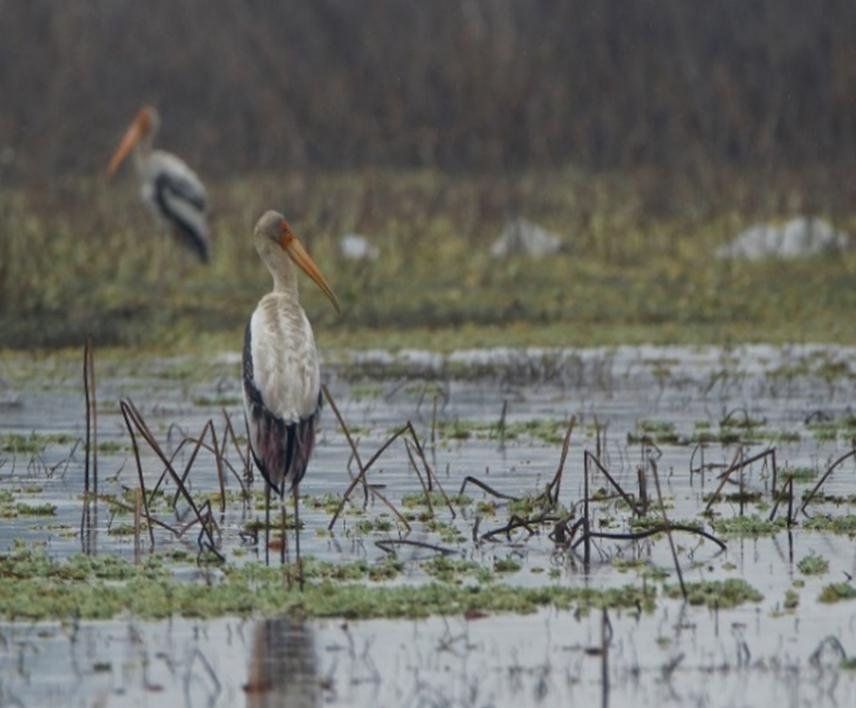Samjhana Kawan
Other projects
20 Apr 2015
Empowering Local Women and Youth for Long Term Conservation of Globally Threatened Lesser Adjutant in Lumbini IBA, Western Nepal
Lesser adjutant (Leptoptilos javanicus) belongs to one of the 19 species of storks’ family, commonly known as Bhundiphor Garud in Nepal. They are profoundly dependent on the wetlands of lowlands of Nepal, and restricted to some isolated pockets in the world. This bird species is facing high pressure due to poaching, habitat encroachment (Baral 2006, Karki 2010) including loss of nesting trees and intensified agricultural practices. As a result, its population is rapidly declining. Besides these, solid waste is also adding threats to wetland habitat of target species and are demanding Community Based Conservations. The solid waste management programs for empowering women will directly help to improve the habitat as well as promote ecotourism for conservation. It will create awareness about biodiversity conservation and provide direct financial benefits from conservation by respecting local culture and nature of Bardia district.

Painted stork in Badhaiya Lake.
Bardia district has largest national park in lowland terai and had always been treated as one of the best tourist places having excellent wild species. However, lack of proper waste management practices has negatively impacted on environmental quality. In some cases, poorly managed waste has resulted in undesirable consequences for the aesthetic value of the landscape and also ruin unique habitats for flora and fauna, especially if it is not well located. Municipalities of Bardia district have been working with local communities and NGOs in conducting activities for waste management. But active community participation has not been achieved yet. This might be due to low conservation awareness amongst local people in Bardia. Thus, Bardia National Park IBA’s condition score is very unfavourable though threat score is medium (Birdlife International, 2017). Also, tourism posed serious threats to globally threatened species which could be a significant problem in the future (Birdlife International, 2017). Therefore, the main aim of this project is to empower the local women for solid waste management in their sources and help them in conservation activities. The results of such community-based activities promote eco-tourism for reducing pressure on natural resources for in-situ conservation.
Basically, through this project, workshops will be launched to aware and empower local women about SWM and the project will also initiate a campaign to establish a “stork education centre”. The main theme of this centre is record keeping of all possible information related to stork, which will help to conservation activities and guide graduate students for their case studies related to stork. The centre will conduct conservation activities like monitoring, emerging threats, mitigation measures and significance of IBAs in biodiversity conservation. Moreover, the effort of this project activities is believed to conserve the habitat of Lesser Adjutant and support to graduates to improve their research work. The execution of this project will develop authorized database of population, nesting tree and habitat status of Lesser Adjutant and contribute to promote eco-tourism in project area. This will help to develop conservation strategy for Lesser Adjutant and its habitat in future.